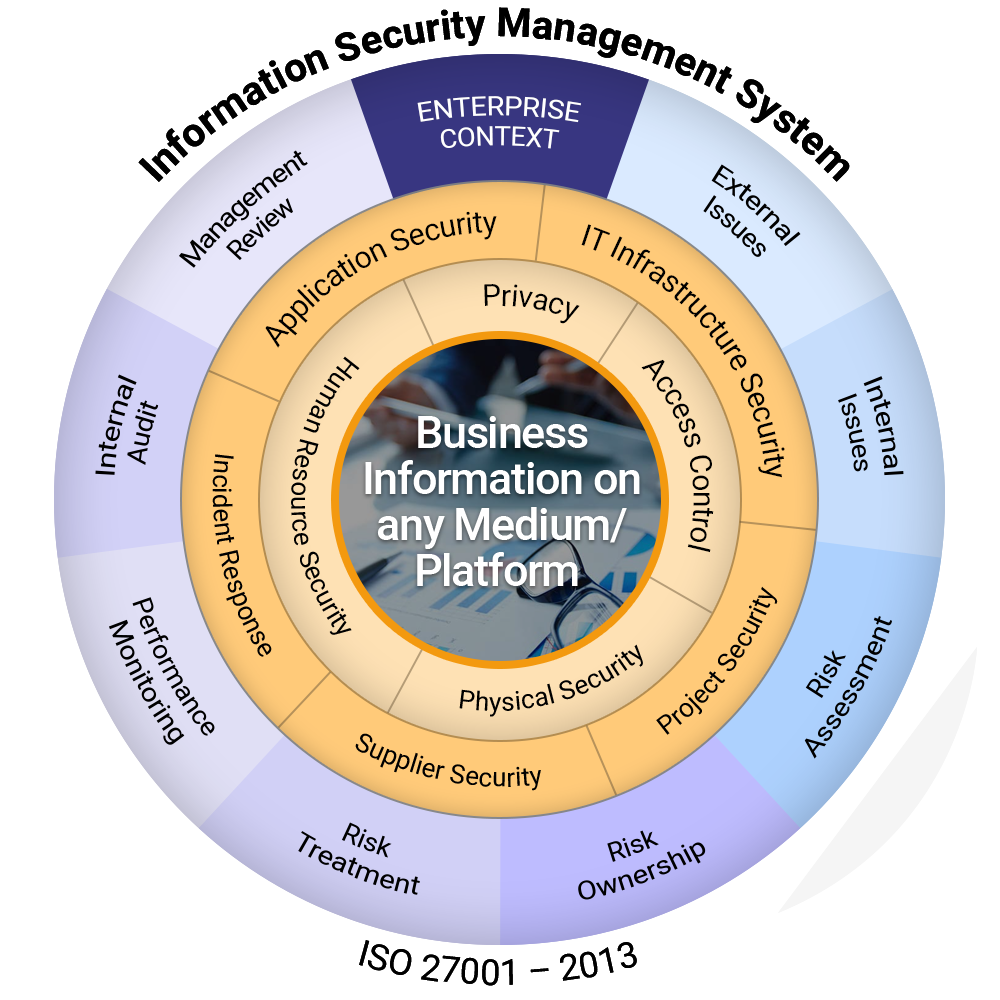Integrated Management System (IMS) Implementation
Integrated Management System Consulting Overview
Our Integrated Management System (IMS) consulting services empower organizations to streamline their management processes, combining multiple standards into a cohesive system that enhances efficiency and effectiveness. By integrating various management systems, organizations can achieve synergies, reduce redundancy, and optimize their overall performance.

What is an Integrated Management System (IMS)?
An Integrated Management System consolidates multiple management standards into a unified framework. This approach allows organizations to harmonize processes related to quality, information security, environmental sustainability, and more. Commonly integrated standards include ISO 9001 (Quality Management), ISO 14001 (Environmental Management), and ISO 27001 (Information Security Management).

Our Approach to IMS Implementation
We follow a systematic approach to ensure successful IMS implementation tailored to your organization’s needs:
Understanding Your Business and Objectives: Collaborate with your organization to comprehend business processes, objectives, and the context in which the integrated system will operate.
Identifying Applicable Standards: Determine the relevant management standards based on your industry, regulatory requirements, and organizational goals.
Gap Analysis: Conduct a comprehensive gap analysis to assess the current state of your management systems and identify areas requiring improvement for successful integration.
Scoping: Work with your team to define the scope of the IMS implementation, outlining the boundaries and objectives of the integrated system.
Documentation: Assist in developing and documenting policies, procedures, and controls aligned with the integrated standards. Provide templates and guidance for streamlined documentation.
Implementation: Guide your organization through the implementation of the integrated management system, ensuring that documented policies and procedures are effectively put into practice.
Training: Provide training sessions to relevant employees on the IMS, emphasizing how to operate effectively within the integrated system.
Internal Audit: Conduct an internal audit to evaluate the effectiveness of the IMS, identifying areas for improvement and ensuring ongoing compliance with integrated standards.
Certification Support: Facilitate the process of obtaining certification for the integrated management system, collaborating with certification bodies to ensure a successful outcome.